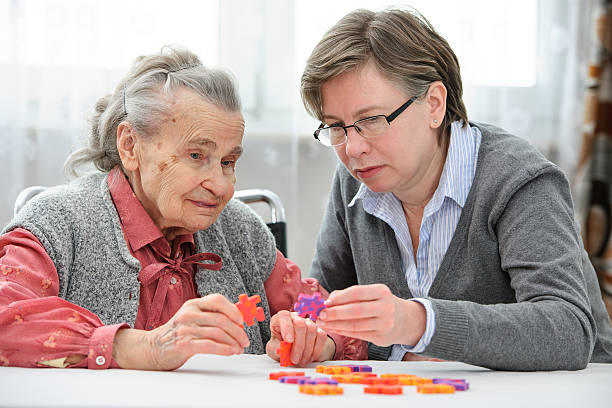Understanding The Mental Health Issues of Home Care
Home care is a vital service for people with mental health conditions. It allows them to live independently in their own homes, and to receive the care they need to manage their symptoms and maintain their quality of life. However, there are a number of mental health issues that can make home care challenging.
Depression

Depression is one of the most common mental health conditions, and it can be a major barrier to receiving home care. People with depression may have difficulty getting out of bed, taking care of themselves, or interacting with others. They may also have suicidal thoughts.
Anxiety
Anxiety is another common mental health condition that can make home care challenging. People with anxiety may worry excessively about their health, their safety, or their future. They may also have panic attacks, which can be very frightening and disruptive.
Psychosis

Psychosis is a serious mental health condition that can cause people to have hallucinations (seeing or hearing things that are not there) and delusions (false beliefs). People with psychosis may also have difficulty thinking clearly and making decisions.
Schizophrenia
Schizophrenia is a chronic mental health condition that can cause a wide range of symptoms, including hallucinations, delusions, disorganized thinking, and social withdrawal. People with schizophrenia may need a lot of support to manage their symptoms and live independently.
Substance Abuse
Substance abuse is a major mental health issue that can make home care challenging. People who abuse alcohol or drugs may have difficulty managing their symptoms, and they may also be more likely to engage in risky behaviors.
Trauma
Trauma is a mental health issue that can be caused by a variety of events, such as physical or sexual abuse, war, or natural disasters. People who have experienced trauma may have difficulty coping with their symptoms, and they may also be more likely to have anxiety, depression, or other mental health conditions.
How to Overcome Mental Health Issues in Home Care
There are a number of things that can be done to overcome mental health issues in home care. These include:
- Finding a qualified caregiver. It is important to find a caregiver who is trained to work with people with mental health conditions. This will help to ensure that the caregiver is able to provide the right kind of care and support.
- Developing a care plan. The caregiver and the person receiving care should work together to develop a care plan that addresses the individual’s specific needs. This plan should include strategies for managing symptoms, promoting coping skills, and maintaining a healthy lifestyle.
- Ensuring access to mental health services. The person receiving care should have access to mental health services, such as therapy and medication management. This will help to ensure that the individual is getting the treatment they need to manage their symptoms.
- Supporting the caregiver. The caregiver should also have access to support services, such as training, supervision, and respite care. This will help to ensure that the caregiver is able to provide the best possible care.
By addressing these mental health issues, we can make home care a more accessible and affordable option for people with mental health conditions. This would allow them to live independently in their own homes, and to receive the care they need to maintain their health and well-being.
In addition to the above, there are a number of other things that people with mental health conditions can do to advocate for themselves and ensure that they receive the best possible home care. These include:

- Knowing their rights. People with mental health conditions have a number of rights under the law, including the right to receive home care that is appropriate to their needs.
- Being an active participant in the care planning process. People with mental health conditions should be involved in all decisions about their care, including the selection of a caregiver and the development of a care plan.
- Communicating effectively with their caregivers. It is important for people with mental health conditions to communicate their needs and preferences to their caregivers. This will help to ensure that they receive the care they need in a way that is comfortable for them.
- Reporting any problems to their care provider or to a government agency. If people with mental health conditions have any problems with their home care, they should report them to their care provider or to a government agency. This will help to ensure that the problem is addressed and that other people with mental health conditions do not experience the same problem.
By advocating for themselves and working with their caregivers, people with mental health conditions can ensure that they receive the best possible home care. This will allow them to live independently in their own homes, and to maintain their health and well-being.
